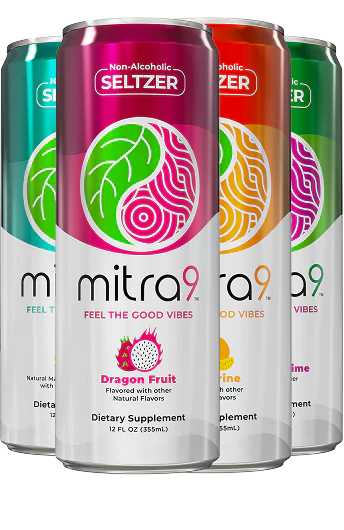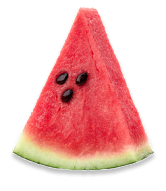
Ever wondered about the difference between Kanna and Kava as you search for natural ways to relax? Kava and Kanna are herbal supplements that have gained popularity for their mood-enhancing and relaxing properties. While both are used for similar purposes, they come from different plants and have distinct effects on your mind and body.
This blog post will discuss their unique attributes and help you understand what differentiates them. Understanding their differences is important if you consider incorporating them into your daily routine. Let’s delve into their differences, but before moving forward, let’s learn about Kava and Kanna.
What Is Kanna?
Kanna, scientifically known as Sceletium Tortuosum, is native to South Africa. Its thick and fleshy leaves can store water, and it has been used for centuries for its mood-enhancing properties.
Kanna holds significant cultural importance among the native communities, particularly the Khoi and San tribes. They traditionally ferment the Kanna plant to enhance its alkaloid profile and chew it raw. Historically, it has been used to alleviate hunger, increase endurance, and feel an oneness and connection with nature.
The four primary alkaloids responsible for its effects are Mesembrine, Mesembreone, Mesembranol, and Mesembrenol. These alkaloids increase your body's serotonin levels, working as a gentle yet effective mood boost.
Health Benefits Of Kanna
Kanna is well-known due to its potential health benefits, which include mood enhancement, stress reduction, and improved emotional well-being. Its alkaloids act as natural serotonin reuptake inhibitors, which can help to promote a happy mentality and deep relaxation. Some users report increased mental clarity and a calm mind.
Potential Side Effects And Risks Of Kanna
While Kanna is considered safe when used in moderate amounts, it can have some potential effects. Consuming Kanna in large doses might paradoxically increase anxiety and stress. Overdosing it might also result in stomach aches. Some people have reported these side effects: headaches, appetite loss, and depression.
Therefore, it is essential to consult your doctor before using Kanna to avoid any adverse reactions.
What Is Kava?
Kava, extracted from the roots of the Piper Methysticum plant of the Pacific Islands, is considered a traditional medicine for anxiety. It plays an essential role in ceremonies and social gatherings across the area.
Culturally, Pacific Island communities use kava due to its well-known calming properties. Traditionally, Kava is consumed during celebrations to promote social bonding, honor guests, and facilitate spiritual experiences. The preparation involves grinding the root and mixing it with water to create a soothing Kava drink.
From the shores of Fiji to the heart of Vanuatu, different types of Kava are known for their earthy taste and numbing sensation on your tongue. It is highly admired due to its ability to calm and relax the mind and body.
The secret lies in its potent Kavalactones and Flavokavins, which interact with neurotransmitters in the brain, inducing relaxation and tranquility. Kavalactones are also responsible for their sedative and anxiolytic properties.
Health Benefits Of Kava
Kava is renowned for calming the mind and body, making it useful for stress reduction and promoting relaxation and a tranquil state. It can also help in achieving restful sleep and mild pain relief. Many users prefer Kava for its non-addictive nature and its effectiveness in reducing anxiety without impairing cognitive function.
Potential Side Effects And Risks Of Kava
While Kava Kava is considered safe, it has its potential side effects. Some short-term side effects include indigestion, mouth numbness, rashes, headaches, and drowsiness.
According to WebMD, Kava is safe for up to 6 months of regular consumption. Concerns about liver damage have been raised, but these cases are rare and often linked to long-term use of high doses. It concludes that most people who have used Kava haven’t experienced liver toxicity. It also comments that the past cases may not solely dependent on Kava, with other factors possibly contributing to liver damage.
Differences Between Kanna and Kava
While Kanna and Kava are gaining popularity in the US for their calming and mood-enhancing effects, they differ greatly in their origins, active compounds, mechanisms of action, and cultural significance. These differences influence how they are used, their effects on the body, and their legal status worldwide. Understanding these distinctions can help you choose the right one for your preferences and needs.
|
Basis |
Kanna |
Kava |
|
Plant Source |
Sceletium Tortuosum plant |
Piper Methysticum roots |
|
Geographic Origin |
South Africa |
Pacific Islands |
|
Alkaloids |
Mesembrine & Mesembreone |
Kavalactones & Flavokavins |
|
Mechanism |
Serotonin Reuptake Inhibition |
Interaction with GABA receptors |
|
Taste & Sensation |
Mild, earthy taste; subtle effects |
Bitter, earthy taste; numbing sensation |
|
Consumption |
Raw chewing, brewed tea, and powdered extracts |
Prepare a beverage with water from root powder |
|
Effects |
Mood enhancement, stress reduction, and cognitive function |
Deep relaxation, tranquility, and anxiety reduction |
|
Cultural Significance |
Used by Khoi and San tribes |
An integral part of Pacific Island cultures |
|
Legality |
Legal in many countries; varies by region |
Legal in some countries; restricted or banned in others |
Kanna And Kava: Choose The Right One For You
Selecting between Kava and Kanna depends on individual needs and desired effects. Kanna is a good choice if you are looking for a supplement to boost your energy, enhance productivity, or support general well-being. Its serotonin-boosting properties help to enhance your mood and improve mental clarity, making it suitable for daytime when you need to stay alert and focused.
On the other hand, if your goal is to unwind and relax after a long and tiring day, Kava is the way to go. Known for its calming effects, Kava is perfect for evening use. It helps to reduce anxiety and prepare your mind and body for a restful sleep.
Still can’t decide which one to use? Both are worth trying, as both offer unique effects and are generally affordable. Experimenting with each can help you determine which one aligns with your preferences and needs.
Quick Overview: Kanna vs. Kava at a Glance
Kanna (Sceletium Tortuosum) hails from South Africa and contains mood-boosting alkaloids like mesembrine that may enhance focus and ease stress. Kava (Piper Methysticum), native to the Pacific Islands, gets its calming power from kavalactones that promote deep relaxation and better sleep.
Kanna is ideal for daytime use when you need energy and clarity, offering a mild, earthy flavor enjoyed as tea or powder. Kava’s bitter, slightly numbing taste suits evening relaxation and is traditionally consumed as a drink. While Kanna supports productivity and mood, Kava helps you unwind — together, they represent nature’s balance between focus and calm.
Final Words
Understanding the differences between Kava and Kanna can help you decide which botanical beverage to choose. Whether looking for increased energy with Kanna or relaxing at night with Kava, both offer unique benefits rooted in their rich history. As you learn about their benefits, the last thing is to consider your individual goals and preferences to find the perfect fit for your wellness routine. Both Kanna and Kava hold valuable potential for enhancing your quality of life, so don’t hesitate to experiment with them and choose the most suitable one.
For those interested in learning more about these herbal supplements, consider exploring these readings and resources:
- Sceletium Tortuosum
- Kanna Extract: Can This Herb Benefit the Brain?
- Kava kava
- Kava kava: Benefits and safety concerns
- What Is Kava and Are There Health Benefits to Drinking It?
They will help you better understand and make informed decisions about your health and well-being.
FAQS
1. Which is stronger — Kanna or Kava?
Kava is generally considered stronger for promoting deep relaxation and sleep, while Kanna works better for boosting mood, focus, and social ease during the day.
2. Can you take Kanna and Kava together?
They can be combined in very small amounts, but it’s best to start slow. Both promote calm in different ways, and mixing them may amplify those effects. Always consult your doctor before pairing them.
3. Is Kava legal everywhere in the U.S.?
Yes, Kava is legal in most U.S. states, though some regions may have restrictions on its sale or labeling. Always check your local laws before buying.
4. What are the main differences between Kanna and Kava?
Kanna (Sceletium Tortuosum) uplifts and energizes, while Kava (Piper Methysticum) relaxes and soothes. Kanna boosts serotonin levels; Kava interacts with GABA receptors for a calming effect.
5. Which one should I choose — Kanna or Kava?
Choose Kanna if you need daytime energy and focus, or Kava if you want to unwind and sleep better. Both are natural, non-addictive options for stress relief


























































